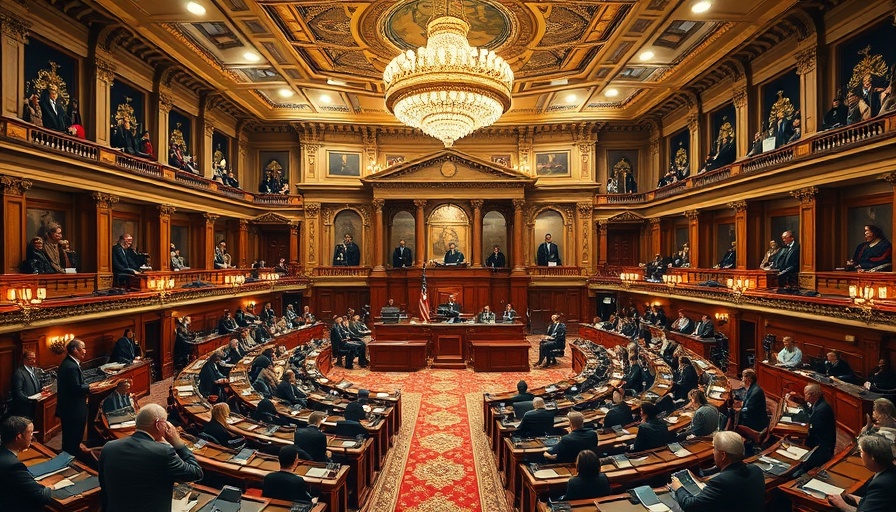
The Tariff Controversy: Lula’s Bold Stance
In an era of escalating geopolitical tensions, Brazilian President Luiz Inácio Lula da Silva has taken a firm stand against President Trump's recent imposition of a 50% tariff on Brazilian goods. Lula vocally criticized the tariff as "political" and "illogical," arguing that such measures threaten not just trade but the very principles of democracy. His comments come in the wake of a U.S. Supreme Court ruling concerning former President Jair Bolsonaro, who is under scrutiny for allegedly attempting to undermine Brazil's democratic process.
Understanding the Underlying Issues
The backdrop of this tariff dispute is significant. Trump's decision to levy tariffs was partly motivated by allegations against Bolsonaro, whose political judicial scenarios have remained contentious. Lula emphasized that while Brazil is willing to engage in negotiations, the core values of democracy and sovereignty should not be subjects for bargaining. He stated explicitly in his New York Times op-ed, "Brazil’s democracy and sovereignty are not on the table," indicating a strong commitment to protecting Brazil's institutions.
What This Means for U.S.-Brazil Relations
The notion that trade tariffs can serve as political tools is nothing new in international relations. However, Lula's assertion that these tariffs could harm mutual trade interests is backed by the fact that Brazil and the U.S. have a history of significant bilateral trade, with records showing a surplus for the U.S. of about $410 billion in goods and services over the past 15 years. This statistic underscores a complicated trade relationship where tariffs could result in diminishing returns for both parties.
Political Ramifications in Brazil
Lula’s grappling with the legacy of Bolsonaro's governance is crucial in understanding the current political climate. The recent Supreme Court ruling has placed Bolsonaro's actions under the microscope, revealing a landscape fraught with division and unrest. Lula praised the court's decision to declare that Bolsonaro attempted a coup, arguing that it helps protect the country's democratic structures. This move can be perceived as a stabilizing factor, yet it has also flagged Brazil as a country potentially facing more scrutiny and sanctions from the U.S.
Potential for Future Sanctions
The rhetoric from U.S. officials following the Supreme Court ruling indicates that further retaliatory actions from the Trump administration might be on the horizon. U.S. Secretary of State Marco Rubio signaled that Trump’s government would "respond accordingly,” a statement that was met with backlash from Brazil’s Foreign Ministry. They labeled Rubio’s comments as inappropriate threats, reaffirming that their judicial system operates independently.
Why This Matters to Local Citizens
For those of us living in Bakersfield and beyond, understanding the implications of these international events is critical. As global citizens, we are increasingly affected by geopolitical developments. Whether it is through indirect economic pressures, potential job impacts, or broader implications for democracy, the stakes are high. Tariffs and international relations can influence local economies and community stability, making awareness and analysis of such issues vital.
Conclusion: The Bigger Picture of Democracy and Trade
As Lula maneuvers the challenges posed by tariffs and deals with the shadows of Bolsonaro, his emphasis on democracy highlights the enduring conflict between trade politics and national sovereignty. For citizens, the importance of supporting democratic values and understanding their implications on commerce cannot be overstated. Staying informed can empower communities to advocate for fair and just policies both locally and abroad. A commitment to democracy ultimately fosters both national well-being and a stable global trade environment.
Call to Action
Remember, your voice matters. Engage with local representatives about the importance of fair trade practices and the protection of democratic values both at home and abroad. Explore avenues for supporting initiatives that strive for a just global economy.
 Add Row
Add Row  Add
Add 



Write A Comment